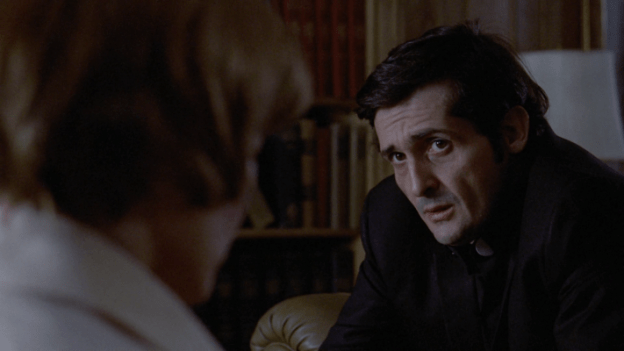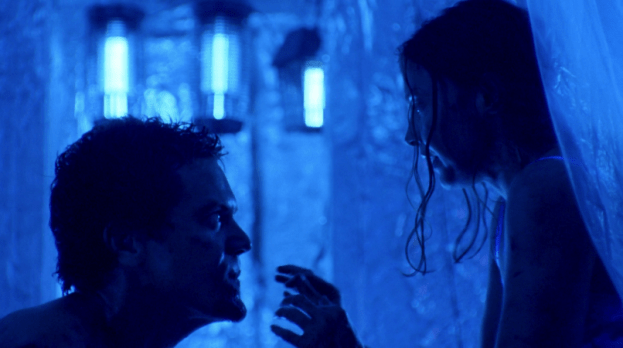Listen on the players above, Apple Podcasts, Audible, Google Podcasts, or Spotify.
You can also hear our discussion of 2018’s The Nun, and our podcast on The Exorcist, part of our exploration of the oeuvre of William Friedkin.
For our 400th episode we indulge in a pair of horror sequels, both heavy on faith, possession, and Christianity. One is part of a modern universe of interconnected stories, characters, and demons, the other represents the reignition of a series whose sequels have been produced intermittently for fifty years without receiving anything like the acclaim of the film that spawned them. The Nun II is the eighth film in the ten-year-old Conjuring Universe; The Exorcist: Believer is only the sixth Exorcist film in half a century. Truly, they don’t make them like they used to.
Neither film in this double bill is very good in totality, but The Nun II contains imaginative and effective set pieces and visual ideas, while The Exorcist: Believer is content to discard a reasonably interesting first act in favour of useless and charmless reference to, and pathetic reenactment of, William Friedkin’s 1973 original. We discuss what we think the films are about, wittingly or otherwise – horror is commonly understood to often allegorise and express the ills and worries of the societies that produce them, and we consider the ways in which these films might be doing so. And there’s much to compare and contrast between them, including their characters’ attitudes to the supernatural; the ways in which religion, be it Catholicism specifically or Christianity more generally, plays into their stories and atmospheres; and the kinds of imagery through which they attempt to instil fear in their audiences. And we take time to criticise many, many examples of the weakness of the storytelling in Believer.
The Nun II, like its 2018 predecessor, is not very good, but it is fun. The Exorcist: Believer is neither good nor fun. Happy 400th episode!
With José Arroyo of First Impressions and Michael Glass of Writing About Film.







